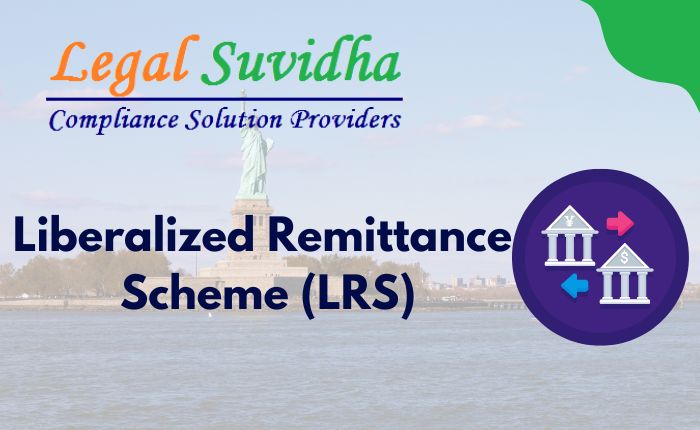The recent regulations regarding the Liberalized Remittance Scheme (LRS) have caused concern for wealthy Indians who have been parking their funds abroad. The LRS is a scheme that allows Indian residents to remit money abroad for various purposes such as investment, education, travel, and medical treatment. However, the Reserve Bank of India (RBI) has tightened the rules around LRS transactions to curb money laundering and illegal activities.
Under the new regulations, the annual limit for remittances has been reduced from $250,000 to $100,000 per financial year. Additionally, Indian residents are now required to disclose the details of their foreign bank accounts and foreign investments to the RBI. The central bank has also directed authorized dealers to monitor LRS transactions more closely and report any suspicious transactions to the Financial Intelligence Unit (FIU).
These new regulations have caused concern for wealthy Indians who have been using the LRS to park their funds abroad for various reasons, including tax evasion. Some of them fear that the new rules may lead to increased scrutiny of their offshore investments and make it more difficult for them to move their funds out of India.
However, the RBI has defended the new regulations, stating that they are necessary to prevent money laundering and to ensure that funds remitted abroad are being used for legitimate purposes. The central bank has also clarified that the new rules do not prohibit Indian residents from remitting funds abroad, but only aim to strengthen the reporting and monitoring mechanisms around LRS transactions.
Overall, the new regulations around the LRS have caused concern for some wealthy Indians, but are seen as necessary steps to curb illegal activities and ensure the proper use of remitted funds.
Impact of LRS regulations on Indian economy –
- Reduced outflows: The reduction in LRS limits may result in a decrease in the outflow of foreign currency, which could have a positive impact on the country’s foreign exchange reserves.
- Decreased foreign investment: Wealthy Indians who have been using the LRS to invest in foreign markets may be deterred by the new regulations, leading to a reduction in foreign investment.
- Increased scrutiny of foreign investments: The new regulations may lead to increased scrutiny of Indian residents’ foreign investments, which could help prevent money laundering and other illegal activities.
- Possible increase in onshore investments: The reduced LRS limits may encourage wealthy Indians to invest more in the domestic market, which could boost the Indian economy.
- Impact on sectors dependent on foreign investment: Certain sectors of the Indian economy, such as real estate and hospitality, may be negatively impacted if foreign investment decreases as a result of the LRS regulations.
- Increased compliance costs: Indian residents with foreign investments may face increased compliance costs as they will now be required to disclose the details of their foreign bank accounts and foreign investments to the RBI.
- Potential impact on exchange rates: The reduction in outflows of foreign currency may have an impact on exchange rates, although this will depend on a variety of other factors as well.
Overall, the impact of the LRS regulations on the Indian economy will depend on a variety of factors, including the behavior of Indian residents with foreign investments and the overall state of the global economy.
Investment options for Indian residents with reduced LRS limits –
- Domestic equities: With the reduced LRS limits, Indian residents may consider investing more in the domestic equity market. The Indian stock market has been performing well in recent years and may provide good investment opportunities.
- Debt instruments: Indian residents may also consider investing in debt instruments such as fixed deposits, bonds, and government securities. These investments offer a relatively stable return with low risk.
- Mutual funds: Mutual funds are a popular investment option in India and may provide a good opportunity for Indian residents with reduced LRS limits. Mutual funds can provide diversification and exposure to a range of asset classes.
- Real estate: Real estate is a popular investment option in India and may be a good alternative for Indian residents with reduced LRS limits. Real estate investments offer potential capital appreciation and rental income.
- Gold: Gold is a popular investment option in India and may be a good alternative for Indian residents with reduced LRS limits. Gold investments offer a hedge against inflation and currency fluctuations.
- Alternative investments: Indian residents may also consider alternative investments such as private equity and venture capital, which may offer higher returns but also come with higher risks.
It is important for Indian residents to carefully consider their investment options and consult with a financial advisor before making any investment decisions, especially in light of the reduced LRS limits and increased compliance requirements.
Economic implications of reducing LRS limits –
- Decreased foreign currency outflows: One of the primary reasons for reducing LRS limits is to decrease the outflow of foreign currency from the Indian economy. This may have a positive impact on the country’s foreign exchange reserves.
- Reduced foreign investment: Wealthy Indians who have been using the LRS to invest in foreign markets may be deterred by the reduced limits, leading to a reduction in foreign investment.
- Impact on sectors dependent on foreign investment: Certain sectors of the Indian economy, such as real estate and hospitality, may be negatively impacted if foreign investment decreases as a result of the reduced LRS limits.
- Increased scrutiny of foreign investments: The reduced LRS limits may lead to increased scrutiny of Indian residents’ foreign investments, which could help prevent money laundering and other illegal activities.
- Potential increase in onshore investments: The reduced LRS limits may encourage wealthy Indians to invest more in the domestic market, which could boost the Indian economy.
- Impact on the rupee: The reduction in outflows of foreign currency may have an impact on the value of the rupee, although this will depend on a variety of other factors as well.
- Increased compliance costs: Indian residents with foreign investments may face increased compliance costs as they will now be required to disclose the details of their foreign bank accounts and foreign investments to the RBI.
Overall, the economic implications of reducing LRS limits will depend on a variety of factors, including the behavior of Indian residents with foreign investments, the state of the global economy, and the effectiveness of measures to prevent money laundering and other illegal activities.
If You have any query then connect with us at [email protected] or you can contact us & stay updated with our latest blogs & articles.









